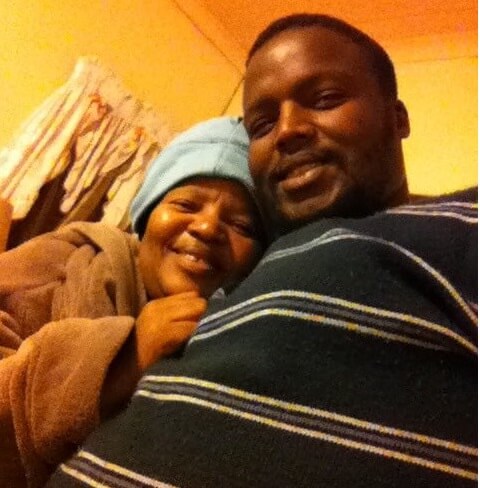The legacy of a man is not the wealth accrued on earth but the lives he touches, it is fair to say that Jabulani “Jabba HipHop Pantsula” Tsambo, who is still celebrated as though he were alive, three years after his tragic death, left an indelible mark on many hearts. Today, Jabba trends on Twitter from the afterlife as South Africans and the rest of the continent pay tribute to a man whose glowing flame was extinguished too soon. To use such a metaphor, perhaps, is misleading because Jabba’s flame still burns strongly.
Hailing from Maf Town, Mafikeng in the North West of South Africa, Jabulani was born on this day in 1980 and would have been 41 today. He was part of the music group The Verbal Assassins before embarking on a solo career in 1997. The multilingual rapper was known for his easy style on the mic and is credited with numerous catchy songs whose lyrics were in IsiZulu, SeTswana, English and SeSotho. Listening to HHP was literally like sampling a multi-layered cake of different flavours, just like the multi cultural Rainbow Nation which honours him today.
Sadly, HHP’s life followed the tragic stereotype of mental health troubles cohabiting with genius. Michael Jackson, Diego Maradona, Amy Winehouse, Brenda Fassie, HHP all shared artistic genius which seems inseparably married to a private (and sometimes public) battle with personal demons. Jabba had more than once attempted to take his own life, due to depression. Two weeks after releasing his EP, titled Feels Good To Be Back, he finally succeeded in ending his life on 24 October 2018, robbing the world of his immense talent and infectious personality.
Celebrating Jabba ’s vision of unity
In a world filled with so much hate for anything or anyone that is different, we could have done with another Hip Hop Pantsula. Jabba was known for his love for Africa as a whole. The one time presenter of a documentary Who Do You Think You Are went on a one man voyage to Inhambane, Mozambique, in search of his roots.
On World Refugee Day, 2013, Jabba paid tribute to great grandfather James Tsambo, the man who “founded” the Tsambo family in South Africa after walking from Mozambique to Johannesburg in search of new opportunities.
HAPPY WORLD REFUGEE DAY…HAPPY?!? Thinking about my Great Grandfather James Tsambo for walking from Inhambane, Mozambique to Jozi – 1887.
— Jabba™ (@HipHopPantsula) June 20, 2013
Not only did he have love for the entire continent, Jabba also left his footprint in other African countries. Stating that “unity is power” (Umoja ninguvu) the descendant of a man who walked from Mozambique to Mzansi also took to the road. On his Daraja Walk, Jabba made the long journey on foot from Southern African – his route included South Africa, Botswana, Zambia, Malawi, Tanzania and Kenya– all the way to East Africa, taking four months to cover 6000 kilometres, accompanied by friend Zondi Chakane known in music circles as DJ Zondi. The dislike of anything foreign is often born out of a lack of exposure and HHP embraced other cultures, different people, new places. The rapper first spoke of idea of the cross continental walk in 2010 but only embarked on the long march on 16 June 2013, South Africa’s Youth Day. HHP named his iconic journey Daraja, the word for ‘bridge’ in KiSwahili, a language he felt was “Africa’s English” due to its wide use in different countries. Through his walk, the artist hoped to build bridges, unite the continent.
Speaking in 2010, HHP the pioneer of Motswako said:
“I refer to my journey as Daraja, which means ‘bridge’ in Swahili. I want to build a bridge and unite African countries as I travel through them.”
Jabba in East Africa
South Africa #UBUNTU
Botswana #BOTHO
Zimbabwe #UNHU
Zambia #UBUNTU
Malawi #UMUNTU #HUMANITY #UBUNTUISM #DarajaWalkMalawi @DarajaWalk #Unity— Jabba™ (@HipHopPantsula) August 10, 2013
Birthday tweets for Jabba
Happy birthday JABBA❤️🙏🏽 I miss you pic.twitter.com/r51yT3SbJL
— KhuliYano (@KhuliChana) September 14, 2021
Happy birthday Jabba wa Rona❤️ pic.twitter.com/1mWsNqCayM
— Silver_Toure ® (@Phemelo08) September 14, 2021
JABBA FOREVER! 🙏
HAPPY BIRTHDAY HIP HOP PANTSULA!🕊❤🥺 pic.twitter.com/KMPqJpgMLq
— Rethabile ❤ (@TheRichRakgadi) September 14, 2021
https://twitter.com/Flagstaff_30/status/1437724193915822083?s=20
Happy Birthday Jabba Man ❤️! You are missed.#JabbaForever pic.twitter.com/4VRkTcNnAu
— Ma-T 🐊 🐘 (@MathapeloLegacy) September 14, 2021
With a vast following of almost half a million, across the screen of HHP’s twitter account, the birthday balloons are rising to heaven where a continent united by one man looks up in commemoration. Rest in peace Jabba, rest in peace HHP.
My pen is capped
Connect with the writer on Twitter @RewindMzansi
